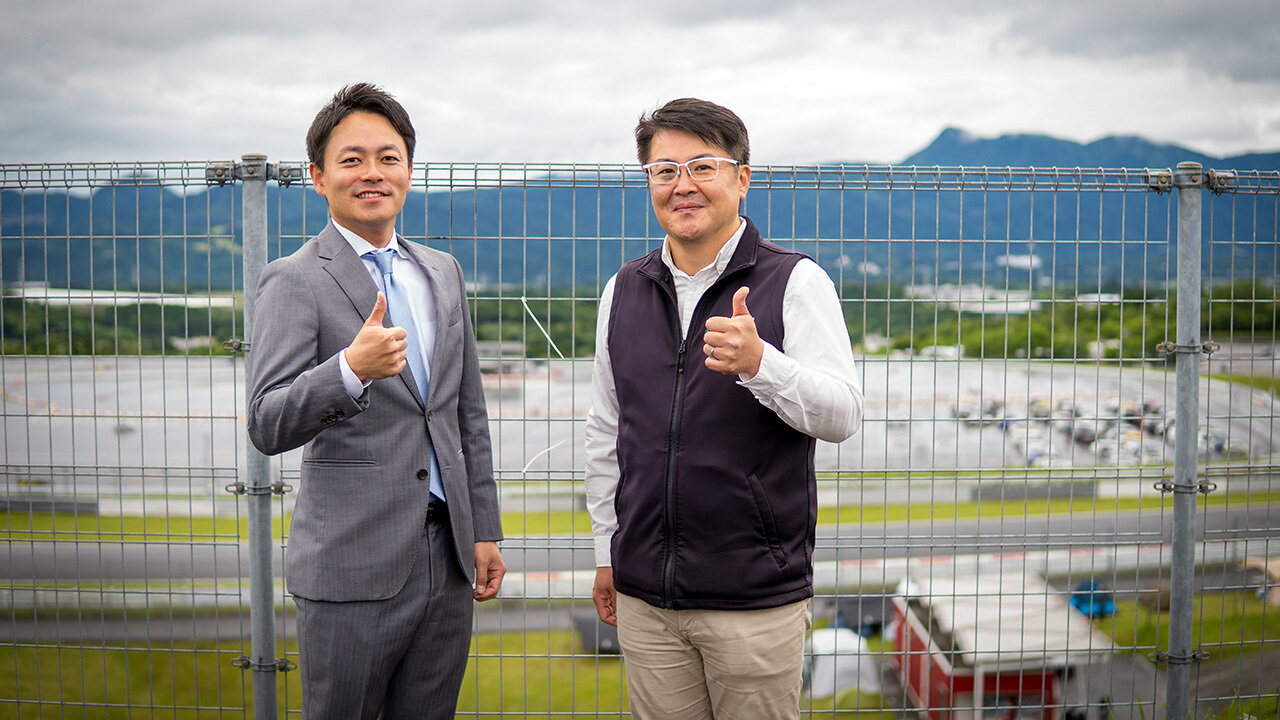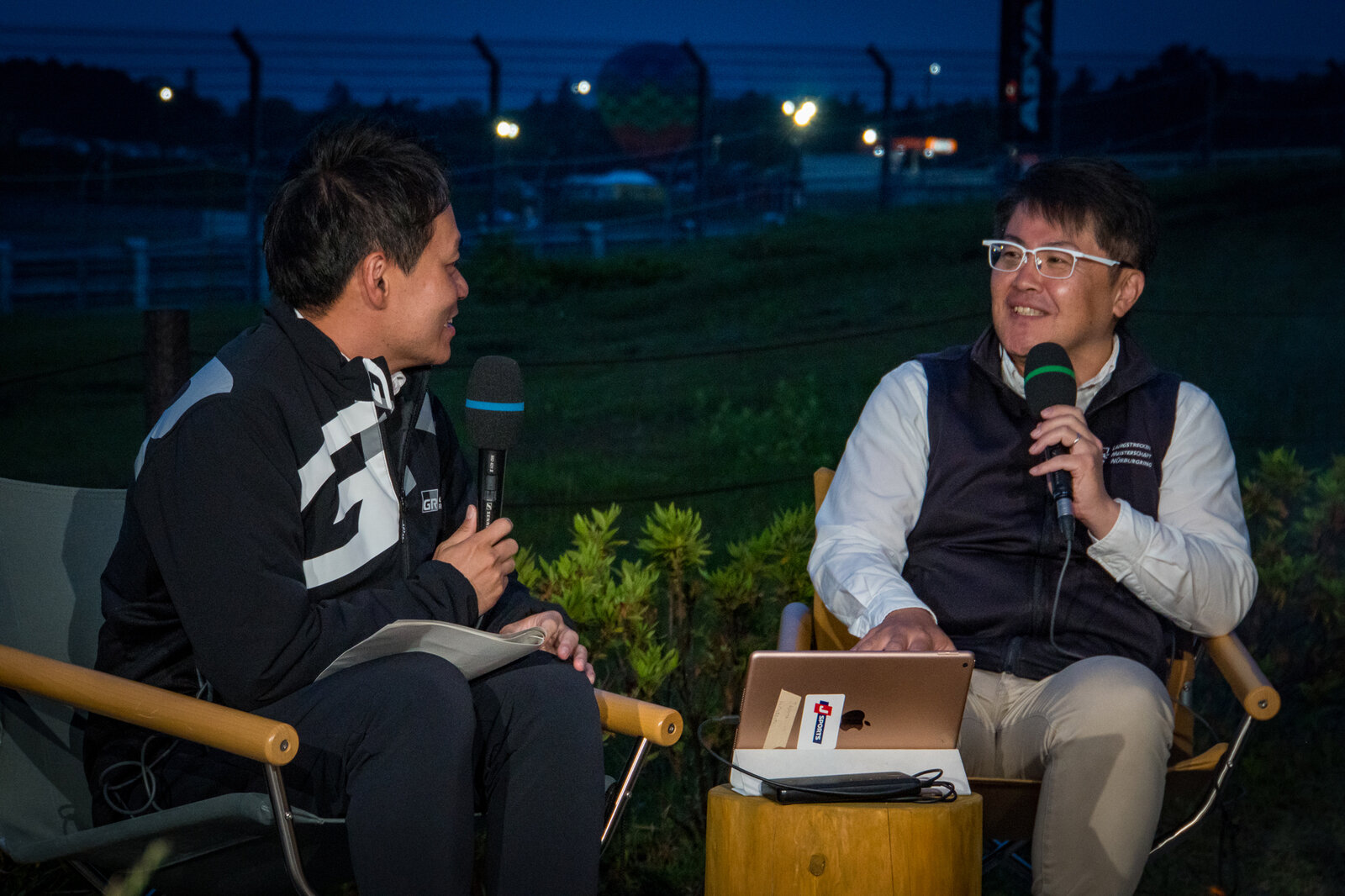
The hydrogen-engine Corolla is racing in the Fuji 24 Hours for its fifth straight year. Once again, we asked automotive analyst Shinya Yamamoto to provide a rundown of the attempt.
This time, we gathered again after dark, sitting around a fire in the Fuji Speedway camp area. Automotive journalist Yuki Imai also joined the festivities to discuss how to cultivate a motorsports culture.
Building people, not brands
Morita
Motorsports cost money, and when the company’s results weaken during a downturn, the tendency is to say, “Let’s just quit.” But as a company that makes cars, doing that also impacts the carmaking, raising the question of, “What should we do now?” Then Morizo came along and made motorsports the starting point, placing it right at the center of carmaking. This accelerated the pace of improvement and set a direction for making better cars, among many other changes.
The other manufacturers followed suit, and we can see them working together here at Super Taikyu.
Yamamoto
If you’re in motorsport for promotion or publicity, then it’s only natural to pull out when business conditions worsen. But if you’re doing it to drive development and ever-better carmaking, then quitting is sure to leave people asking, “What are you guys doing?”
Morita
On Toyota Times Sports, we support Toyota athletes across various sports. In corporate sports, however, the tendency is to pull out when business is going badly, isn’t it?
Yet Toyota has never quit. We have never shut down any of our sporting teams. That’s because at Toyota, sporting teams are not about branding but about nurturing human resources.
We learn so much from the examples of our athletes, and since the aim is to develop personnel, there is never any suggestion that support might depend on business conditions.
I felt a common thread there when listening to your comments.
Yamamoto
For Toyota, motorsport is about carmaking, so pulling out would be a rejection of the company’s carmaking ambitions.
Morita
In that light, I feel like placing motorsports at the center and creating a culture around it is not just something the company does to make cars—it is also about the enjoyment of those watching, getting people excited about driving, and bringing happiness to all.
Yamamoto
Cars are a culture. All of it, from monozukuri to watching and driving—without that culture, I don’t think this Super Taikyu 24-hour race would be much fun.
Morita
I completely agree that, creating a motorsports culture isn’t just about enjoying the sport. It is also about carmaking, which is a fundamental part of our daily lives. As cars get better, they become more fun to drive, the industry grows stronger, and all of that expands outwards. Which is why this place is so important.
Imai
Great. I’m glad we were able to get our feelings across.
Morita
Both of you, your passion burns hotter than this campfire, and I was a bit blown away. But with both the Nürburgring and Super Taikyu, this year seems set to be something special, as we enter the next phase.
Imai
I’m sure it will be.
Yamamoto
Can you handle two 24-hour races?
Morita
It’s going to be tough, but also a lot of fun.
Yamamoto
And I have to stick through it every minute. That’s my role.
Morita
You’re the endurance racemeister, right?

Yamamoto
Only in terms of covering every endurance race (laughs). The meister of sleepless 24-hour coverage.
It’s a rather narrow specialization, but you have to stay awake for the full 24 hours—you never know when something is going to happen.
The 2025 Fuji 24 Hours had its start time pushed back one hour due to heavy thunderstorms. Crashes and thick fog during the night caused the race to be red-flagged until morning. It was a stark reminder that, in a 24-hour race, anything can happen.
Such unpredictable races play an invaluable role in developing not only cars, but also people.

